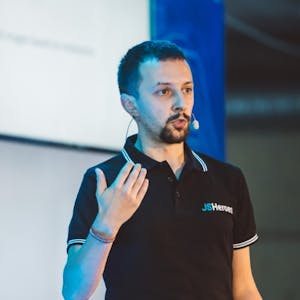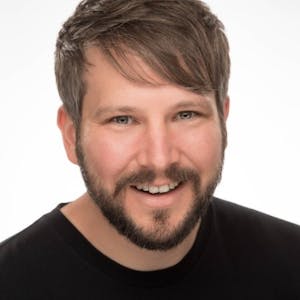No importa si proviene de ti o no. Pero puedes pedirle a tu líder técnico que te apoye en lo que estás promoviendo. Y por último, considera que podrías ser el único que tiene ese problema en el equipo. Si las personas realmente no hacen el esfuerzo de apoyarte, simplemente podría ser algo con lo que tendrás que lidiar. No hace que el problema sea menos importante porque es importante para ti, pero podrías necesitar una estrategia diferente para trabajar en ello.
Me encanta eso. Me encanta eso. Y también a veces reflexiona sobre ti mismo. Si eres el único que se queja, ¿eres también el factor común?
El siguiente también, sé que hemos pasado por muchas preguntas, pero tenemos un poco más de tiempo. Pero ¿cómo mantienes la energía? Porque, quiero decir, mejorar uno mismo requiere mucha energía. Como dijiste, leer todos estos libros, hacer todas estas investigaciones, tener fe requiere mucha energía. ¿Cómo mantienes, no quiero decir motivación, porque tal vez sea un poco de motivación, disciplina, pero cómo mantienes ese impulso?
Sí. Quiero decir, uno de los secretos que ya compartí en la presentación es hacer un seguimiento del progreso. Quiero decir, suena tan sencillo y todo el mundo habla de ello, logros, alardear, lo que sea, funciona, gente. Simplemente funciona, ¿verdad? Requiere ese esfuerzo adicional de escribirlo, de pensarlo. Una forma sencilla de pasar por ese proceso es construir tu CV. En tu CV, tendrás que pensar en lo que funcionó bien. Así que es un ejercicio que realmente hago con las personas para aumentar su confianza y motivación. Lo segundo, y eso funciona para mí, es importante saber y tener en cuenta que no siempre puedes mejorar al mismo ritmo. Está bien tomar descansos en la mejora. A veces digo, mira, ya tuve suficiente. No quiero aprender más. Estoy bien. Quiero quedarme un poco donde estoy ahora y está bien, ¿verdad? Así que creo que es importante que estés constantemente consciente de dónde estás, a dónde quieres llegar y cómo eso te afecta y seguir diciendo en el proceso, ¿verdad?, eso es clave. Y está bien, no hay prisa. No hay, siempre puedes ser mejor, pero también puedes redefinirte. Tomarse tiempo libre para mejorar puede ser muy beneficioso para tu mejora.
Increíble, increíble. Muy bien, terminaremos con esta pregunta. Sé que dijiste que tenías una lista con todos los libros y diferentes recursos sobre liderazgo. ¿Dónde pueden encontrar las personas esta lista y dónde pueden obtener más información sobre el trabajo que haces? Sí, en LinkedIn. Estoy allí todo el día. Comparto recursos, herramientas, consejos y también escribo sobre ellos en detalle en mi boletín. Así que no dudes en echarle un vistazo y contáctame. Respondo a cada mensaje de LinkedIn que recibo y estoy más que dispuesta a ayudarte con cualquier cosa con la que estés luchando. Increíble, gracias. ¿Podemos darle a Anna-Marie otro gran aplauso?

























Comments